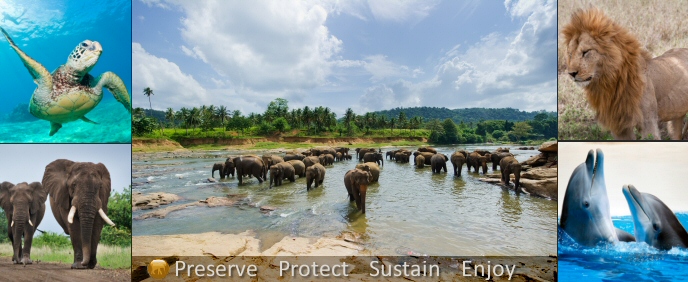
Eco Tours in Benelux - Sustainable Tourism & Conservation Laws.
Benelux is not quite a country, not quite a region, and not quite sovereign. It is, quite literally, an economic union between the very small countries of Belgium, the Netherlands, and Luxembourg. It was brought about by an increasing desire for a concerted voice within Europe in the 1950's, and has developed into a highly functional union of shared economic interests. These are independent countries that don't carry as much weight on their own as they do when their voices are combined, and the union has led to economic gains for all three countries. However, it has also led to a need for reconciling the different ways in which these countries view conservation, as well as their different approaches to reach similar goals. Despite these differing viewpoints, the countries comprising Benelux have been able to enact some fairly comprehensive laws in the area of conservation.
One such set of laws is set down in the Benelux Convention on Nature Conservation and Landscape Protection. The convention lays down the framework through which areas of special concern can be designated, and the means through which those areas are managed by the economic union. This is an especially important convention because it has regularized the ways that the countries of Benelux work together toward conservation goals. Since many protected areas cross boundaries between countries, this type of institutional framework is necessary for any efficient management to take place. The convention also calls for certain legal protections of land, with designations over whether the land can be used for tourism, or strictly for research. This is important for tourists to keep in mind, since it adds an extra layer of regulation to weed through.
Hunting is also regulated throughout the economic union through the Benelux Convention on the Hunting and Protection of Birds. Through this convention, the countries of Benelux have standardized the classification of game into four distinct categories, each being provided with different levels of protection. This has aided in the creation of a regulated "open" and "closed" season for hunting. It also has led to the creation of game laws that prohibit the taking of protected bird species, and also prohibit the disruption of the nest sites of protected birds.
Given the harmonious nature with which they interact with each other, travelling between the three countries that comprise Benelux is extremely simple. In fact, most tourists that travel to Benelux spend equal amounts of time in each of the three countries, creating a unique tourism relationship between them. The countries of Benelux have not created "competing" tourism interests, but have rather come together to advance tourism development more or less equally between them. Tourists that travel to Benelux will be met with very popular coastal destinations, as well as distinct inland forests. In the North Sea, wreck diving is a common activity among tourists, however the frigid waters require that all divers are certified in the use of dry suits.
Benelux is a very popular tourist region for many reasons. With a long and illustrious history, the area is commonly travelled by tourists looking to take in the culture and heritage of the area. However, there is a definite contingent of people that come here every year to enjoy wreck diving and hunting of lowland game birds. Since much of the area is lowland marshes and coastal plane, it is a hotbed of activity for migrating birds. This not only creates a healthy hunting industry here, but also the necessity to enact legal measures to conserve these game species from over-exploitation. Among the other members of the European Union, Benelux stands out as one that has the most comprehensive conservation laws.

